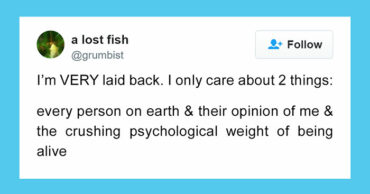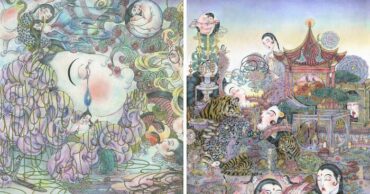This story comes from a concerned mother of a baby girl who is wondering whether she has crossed the line. The woman who goes by the handle RealisticEnd465 shared that her daughter has a very thick unibrow. And although she finds her beautiful, other people don’t.
“I am SO tired of the comments from other people. Literally on a daily basis, people tell me I should dress her up as Frida Kahlo for Halloween, jokingly ask if she has a caterpillar on her face, tell me dad must be really hairy, etc.,” the mom explained.
Fed up with all the comments about her daughter’s appearance, RealisticEnd465 decided to it was the best decision to shave “a little separation into her brow.” This didn’t sit well with her husband, and now the two are torn apart.

Image credits: Ran Kyu Park (not the actual photo)





Image credits: Pavel Danilyuk (not the actual photo)




Image credits: gorodenkoff (not the actual photo)

Most people have two distinct eyebrows, with a more faint patch of hair between two. However, on some people, this brow hair is much thicker, which results in the appearance of one long eyebrow known as a unibrow or monobrow.
Scientists have identified a gene that appears to influence whether or not your eyebrows meet in the middle: the PAX3 gene on chromosome 2. There is a difference in the DNA that seems to correspond with varying degrees of unibrow.
According to them, the PAX3 is the monobrow gene, which has previously been shown to control where in the face “nasion” is located – the point at the middle of two eyebrows.
Many people sided with the mother and said that she did nothing wrong








One of the authors of this research, Kaustubh Adhikari, who is a researcher in Cell and Developmental Biology, UCL, argues that “it is reasonable to see it associated with monobrow, too, which is hair covering that part.” He added that “rare mutations of PAX3 have been shown to cause Waardenburg syndrome type 1 (85% of patients with this condition have monobrow).”
“We also found that the gene PRSS53, which has also evolved to be different in East Asians, is involved in making hair either curly or straight, as verified through our extensive labwork,” Adhikari explained.
Others called the dad out for not noticing the change in his daughter for a whole month


Some people tend to be more judgmental about other people’s looks than others. In some cases, they even become bullies. To find out what exactly happens in the mind of critics, we spoke with Dr. Lise Deguire, clinical psychologist and author of a multiple award-winning book “Flashback Girl: Lessons on Resilience From a Burn Survivor.”
“In my clinical experience, the people who are most judgmental towards others are secretly the most harshly judgemental towards themselves. Inside, these people are highly self-critical. It is no wonder then that they treat others the same way they treat themselves, critically and harshly. Frequently, when these people learn to be more loving and accepting towards themselves, they also become more tolerant and sympathetic towards others,” Dr. Lise explained.
The clinical psychologist explained that people’s judgment and criticism of us feel terrible, sometimes even devastating. “When this happens, the first thing to do is to notice your own pain and distress and to treat yourself kindly. It hurts, plain and simple. Having compassion for your pain will help you bear it.”
“Once you have recovered from the hurt of being judged, it is good to remember that anyone judging you that harshly is probably in a lot of pain themselves,” Lise said and added that awareness may help you to move beyond the hurt of the moment.








 Follow Us
Follow Us





